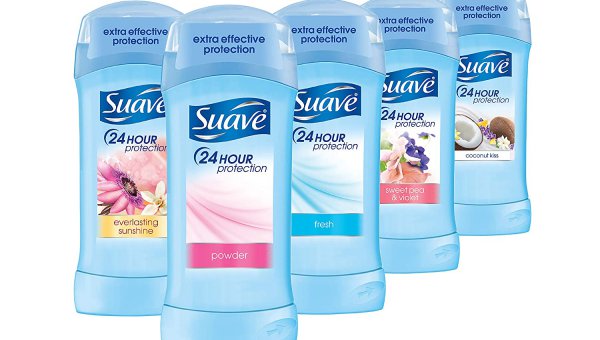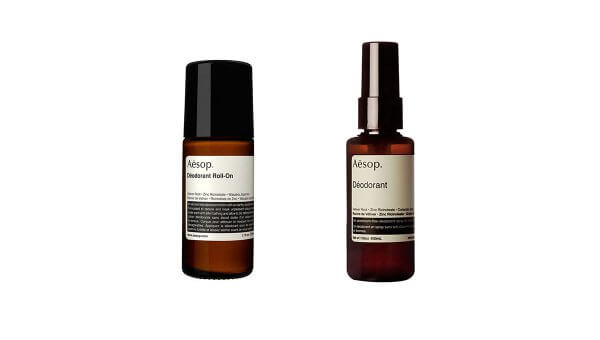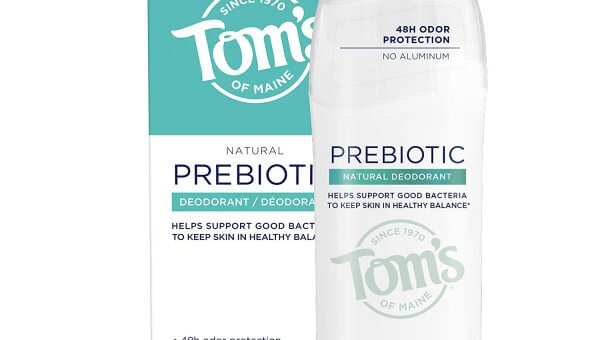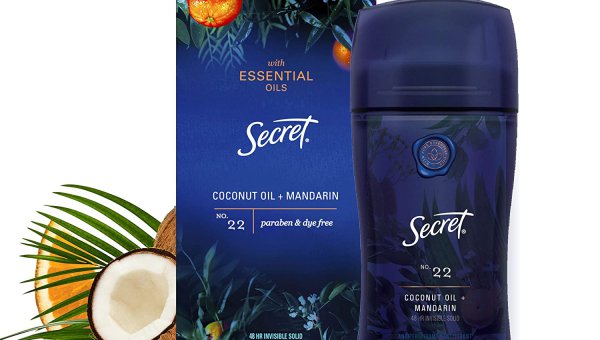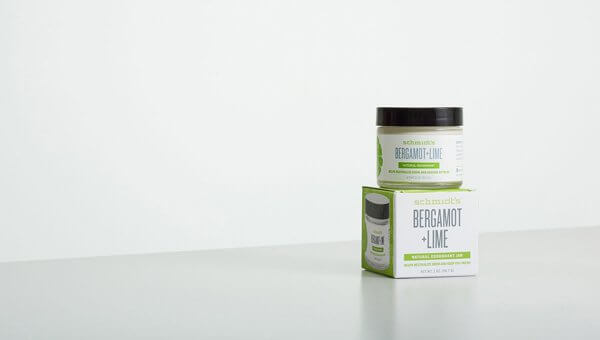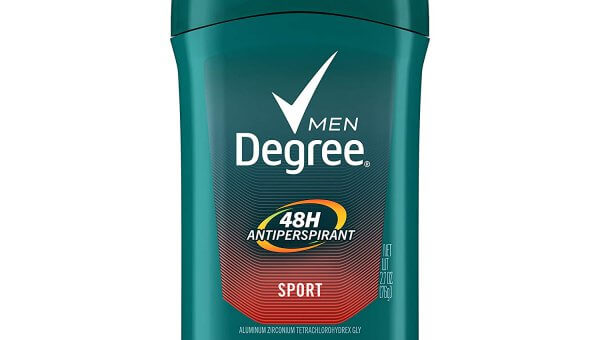Deodorants
Human beings are social animals. We either seek out or can’t avoid being around other people. In social situations, presenting ourselves to others in the best light is instinctual. This usually involves our physical appearance first. But, if we get close enough to another, then another concern is how we smell to the people around us. That’s how perfumes and deodorants came to be in popular use.
We all have a natural scent. Sometimes, however, it becomes overpowering and unpleasant. This “body odor” is associated with perspiration, so the best way to smell good is to deal with both issues. In general, you would need a deodorant for the smell, and an antiperspirant for the sweat. There’s a slew of brands in the market today that offer such products, for example Degree, Secret, Schmidt’s, and Tom’s.
Before we discuss what these products are and how they work, let’s tackle the fundamentals first.
What Causes Body Odor?
It might surprise you to know that sweat is actually odorless. Body odor only occurs when the bacteria living on your skin interact with your sweat. These otherwise harmless microorganisms break down proteins and produce acids with an unsavory smell. The proteins come from a type of sweat gland known as an apocrine gland which develops after puberty. Hence, little kids generally don’t have body odor.
The parts of your body that are most affected are your armpits, feet, and groin. In everyday life, it’s the armpit odor that typically causes the most concern. Men exhibit greater apocrine gland activity than women, and therefore their scent is stronger. Other factors that could influence the intensity of body odor are diet, physical activity, and medications. People with hyperhidrosis (described by the Mayo Clinic as excessive sweating with no obvious cause such as heat or exercise) are also more susceptible to odor.
How Does a Deodorant Work?
A deodorant doesn’t prevent you from sweating, but it does help to manage body odor by targeting the bacteria that are the root of the stink. Many deodorants contain compounds such as stearyl alcohol and sodium stearate which alter the chemical composition of your underarm area. Bacterial fermentation is impeded as a result. Other ingredients are antimicrobials that kill the bacteria outright.
Deodorants also consist of pleasant fragrances that can counteract or mask your odor. These could be manufactured chemicals or sourced naturally from essential oils. Although deodorants and perfumes are very similar, the former are used directly on the skin and not on your clothes.
How Does an Antiperspirant Work?
Whereas a deodorant doesn’t affect sweat production, an antiperspirant does. It blocks your sweat ducts to reduce the moisture that reaches the skin’s surface. Traditionally formulated with metallic salts like aluminum chloride and aluminum chlorohydrate, contact with water forms gel-like plugs over the ducts. Sweat is still being produced by the sweat glands, but it can’t come out of the skin. The dry environment prevents the bacteria from doing their smelly work. The gel plugs are temporary, though, and disappear when your skin sheds its cells.
Antiperspirants are a subgroup of deodorants. Many people use the two words interchangeably, but each has a different function. In any case, many commercial products are a combination of both—for instance, Degree and Suave. To keep things simple, let’s just use the umbrella term “deodorant” from this point on.
What’s the Correct Way to Use a Deodorant?
It may be counter-intuitive, but the best time to apply deodorant is actually bedtime. Cleanse your underarms thoroughly; an anti-bacterial soap is recommended but only if your skin can tolerate it. After your shower or bath, dry yourself and apply the deodorant. As you sleep, the active ingredients are being absorbed by your skin into the sweat glands. You can wipe or wash off the residue in the morning.
Because of individual variations in microbiome (the colony of microorganisms on the skin), a product that works for you might not be as effective for someone else. The effectivity could also depend on your environment and activity level. Are you sweating more because it’s summer? Did you just finish your workout at the gym? To find out if a product really suits you, it may take a bit of experimentation. Moreover, deodorants are available in hundreds of scents. You can choose the ones that smell nicest on you.
Are You Risking Your Health?
The short answer is no. Although the use of aluminum salts in deodorants is a controversial topic, the US Food and Drug Administration confirmed that these products are safe. There’s no evidence that they can cause breast cancer or Alzheimer’s disease.
Paraben, another substance that is commonly found in food and cosmetics, has also raised some concerns. However, research cited by the American Cancer Society found no direct links between parabens and cancer. Furthermore, most major brands of deodorants don’t even use parabens anymore.
What is a Natural Deodorant?
Traditional deodorants aren’t harmful, but there is proof that they can change your microbome. The long-term effects are still unclear, but some people want to avoid any potential negative impacts if they can. As a result, there’s a movement to use natural deodorants instead of traditional ones. They’re usually made with three components:
- Antibacterials or disinfectants, such as tea tree oil or coconut oil
- Essential oils like bergamot and lavender as a perfuming agent, but also to kill bacteria
- Absorbent ingredients to fight excess moisture, such as baking soda or arrowroot powder
Natural deodorants were originally thought to not work as well as traditional products, but with the discovery of new ingredients, they’re getting better all the time. One brand that has done extensive research in this area is Schmidt’s.
Smell Great All the Time with the Right Deodorant
Body odor is perfectly normal, but it could get unpleasant sometimes. It could make you self-conscious and diminish your confidence in a social setting. Even though you can’t avoid sweating, applying a deodorant every day will ensure that you smell good.There’s a plethora of products to choose from, so there’s no excuse. Remember: the best fix for a stinky situation is prevention.
Types of Deodorants
Suave Deodorants
Sweating is a natural process that your body uses to regulate its internal temperature. It occurs when the ambient temperature gets too hot, during exercise, ...
Read MoreAesop Deodorants
If you’ve heard of the Aesop brand, then you know that they produce some of the best-smelling perfumes in the world. Their unmistakable scents are ...
Read MoreTom’s Deodorants
More and more people are opting for an all-natural lifestyle. There are toxic chemicals everywhere and unfortunately, many can be absorbed into your body through ...
Read MoreSecret Deodorants
Who hasn’t heard of Secret Deodorants? When it comes to managing sweat and body odor, it’s one of the oldest and most trusted brands in ...
Read MoreSchmidt’s Deodorants
Very rarely is a person unbothered by his or her body odor. It’s perfectly normal, and yet it can cause you to be extremely self-conscious. ...
Read MoreDegree Deodorants
All of us naturally sweat. It’s the body’s way of cooling down during a hot day or after exercise, Without it, your internal temperature rises ...
Read More
